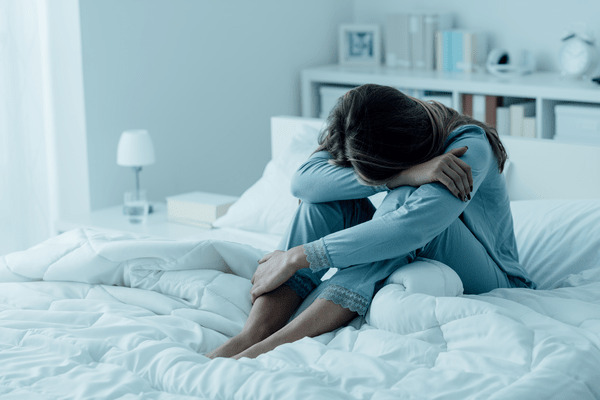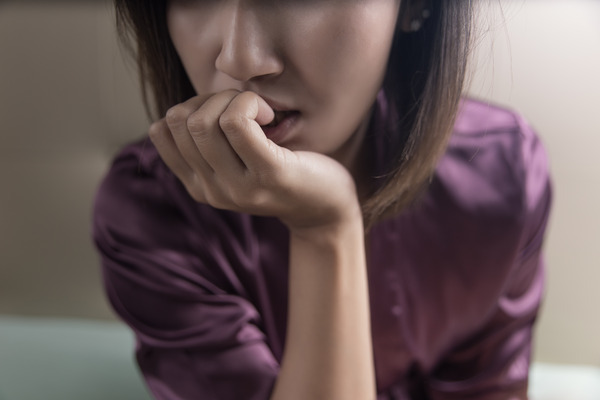Do you know what an anxiety crisis is? Why can we experience anguish? Discover the main symptoms to identify a feeling of anxiety and what to do about it.
You probably think that the distress It has come to you by chance, by bad luck, like a “fall from the sky.” All this has no logical explanation, that one day you simply suffered the first attack and since then you have been like this. Well dear ones, I have to tell you that this is not true.
Everything has an origin, everything has an explanation. This explanation is sometimes difficult to find, there are even certain things in our world that are beyond the reach of our understanding, but anxiety does have an explanation and knowing it is the first step to overcoming it. The distress It is one of the most painful emotions that human beings feel, the word means extreme pain or anguish. Dealing with and coping with this emotion can be very difficult, but there are things you can do to help lessen the pain and come out on the other side.
What is anguish?
The distress It can encompass a number of different emotions, such as trauma, pain, sadness, fear and anxiety. In many cases, distress can refer to having intense, even rational pain over a horrible situation. Someone may experience distress when going through a divorce or the loss of a loved one.
A traumatic event can change you as a person, especially if the distress lasts long enough. The anxiety crisis They often come after a traumatic event, making coping even more difficult. When people are unable to cope with distress, this can lead to developing depression and anxiety.
Symptoms of distress
The distress It usually covers a wide range of symptoms and is often related to depression and anxiety. The most common symptoms of distress are the following:
- Feeling overwhelmed: The people with anxiety They often experience helplessness or despair, as they feel hopeless.
- Culpability: The feeling of anguish It also implies a feeling of guilt that has no clear cause.
- Worry: The people that suffer from anguish They may end up spending a lot of time with excessive and irrational worry.
- Lack of concentration: The emotional distress It is also synonymous with having difficulties thinking or remembering certain events.
- Sleeping too much or too little: Experiencing anguish It can also end up affecting the sleep pattern of those affected.
- Isolate yourself from people and/or activities: By constantly passing through a feeling of anguish Many people may stop socializing and even avoid certain events.
- Fatigue: Extreme tiredness can also be a sign that you are experiencing distress
In many cases, the distress symptoms They may vary due to the presence of other mental health disorders. If you think you may be in this situation or this feeling of anguish is affecting you too much, it is important that you go to a professional psychologist.
Causes of emotional distress
The main causes of emotional distress They usually vary from one case to another, although they generally involve a combination of factors:
- Trauma: in some cases The anguish It appears due to a traumatic experience or event, such as the death of a loved one or a romantic separation.
- Stress: People who suffer from too much stress, as well as experience many worries around a topic, may experience anxiety and anguish
- Relationship problems: People who are going through a difficulty with someone they love may experience a feeling of anguish because of that.
What are anxiety attacks?
I am not going to talk about good anxiety and bad anxiety, nor about what a panic attack (previously called a panic attack) consists of. We are going to explain the origins very briefly. Surely the first panic attack is preceded by a life situation of intense stress such as work problems, marital or family problems, some type of personal problem, and even drug use. But these problems do not act alone, they are not the only predisposing factors for a panic attack. These stressful life situations come together with a biological and psychological vulnerability that the person has.

Why do I have anxiety?
We talk about psychological vulnerability to refer to a person’s tendency to evaluate these types of experiences in a more threatening way and a lack of resources to deal with them. And of course, mention that early evolutionary experiences are of vital importance in the future of our adult lives. That is, if we did not learn to deal with these types of stressful situations from a young age, when we grow up we will not know how to solve them.
Well, let’s take these elements (life situation of intense stress, psychological vulnerability, biological vulnerability and early life experiences) and put them in a blender. The result will be a smoothie that we will call ““anxiety crisis”.
In this way, we want to make you understand that anxiety It is not a product of chance or bad luck, it has been growing in you little by little, and in the same way it will go away, little by little. Don’t set deadlines, anxiety is overcome progressively, and it is overcome, don’t have any doubt about that. Correct knowledge is the first step to overcoming anxiety.
What to do when you have anxiety?
experiment with distress It can affect many aspects of our lives. In fact, people who have this feeling of anxiety can end up feeling any task as overwhelming and unmanageable. You can try certain things to improve distress, such as surrounding yourself with a more positive environment or exercising. Additionally, you can do the following to overcome feelings of distress:
- Distract you: Finding an activity to distract yourself can help you manage both The anguish like the sadness associated with this feeling.
- Take care of yourself: The distress It often causes people to experience critical and negative thoughts towards themselves. This can end up affecting personal care. In these cases, it is important to focus on taking time for yourself.
- Practice gratitude: Practicing gratitude can help you stop experiencing anguish and anxiety Taking time to practice gratitude and finding things we can be grateful for is an effective method for dealing with negative emotions and distress.
Distress and its treatment
When The anguish becomes unbearable and has a profound effect on your life, affecting both eating and sleeping, it means that you require the help of a professional psychologist. In fact, one of the most effective ways to address anxiety is precisely by talking about it.









